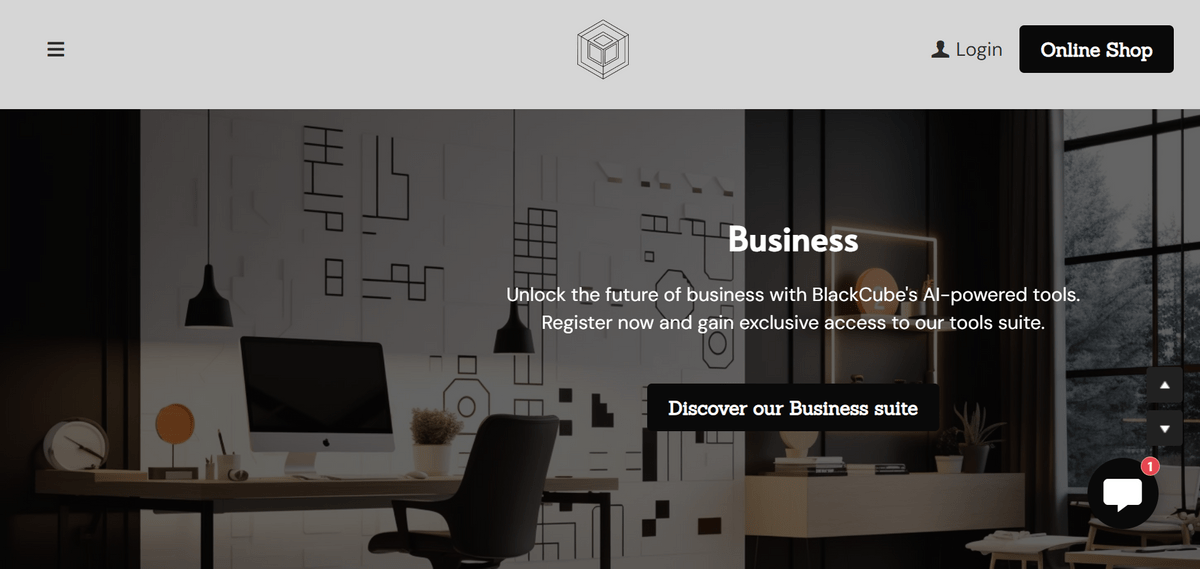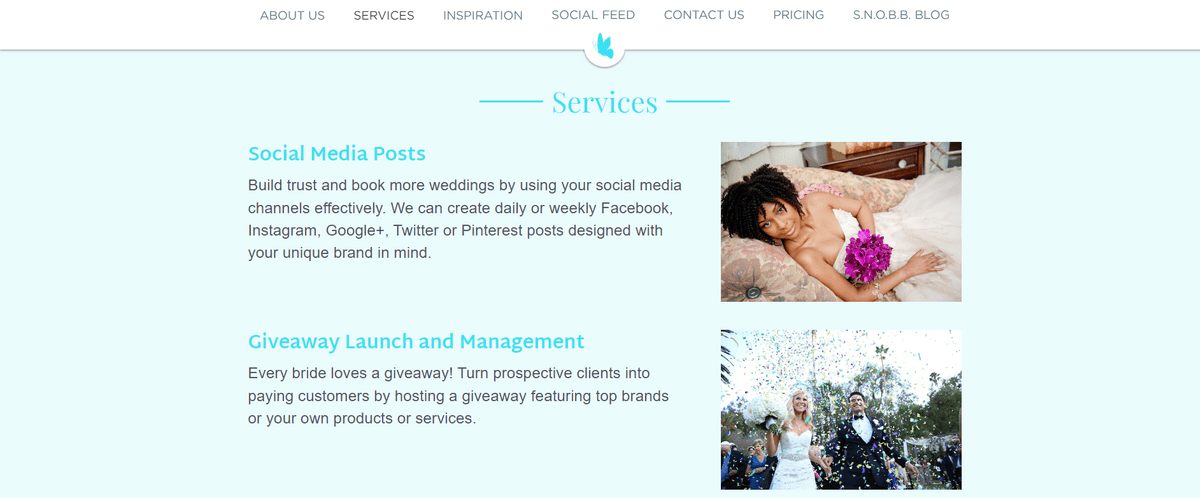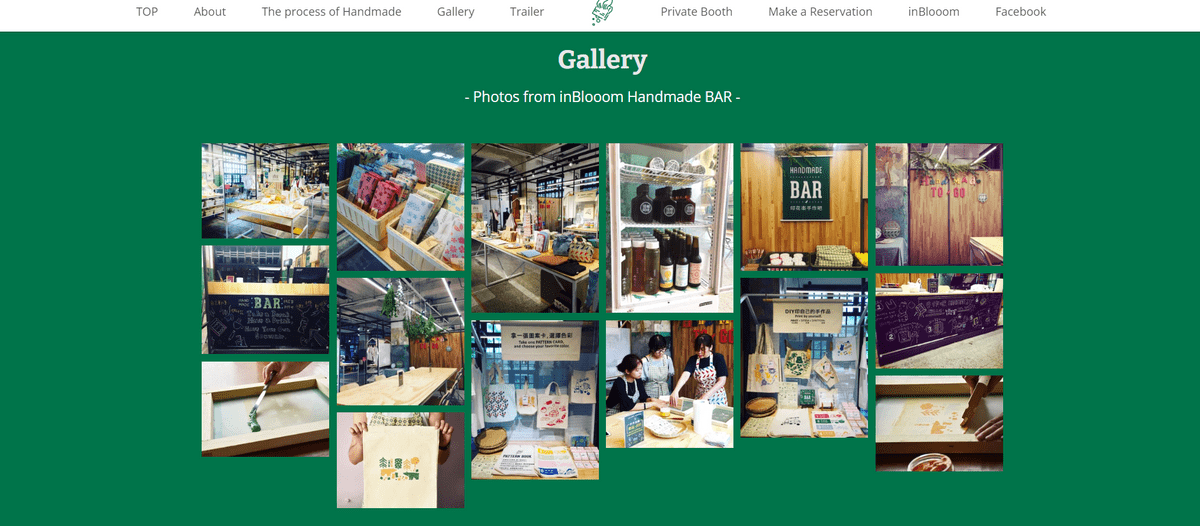From Clicks To Conversion: Channeling Success With Digital Marketing Funnels
From Clicks To Conversion: Channeling Success With Digital Marketing Funnels

Understanding the digital marketing funnel is crucial for businesses looking to maximize their online presence. This powerful tool helps guide potential customers through the buying journey, from initial awareness to purchasing. The importance of digital marketing funnel cannot be overstated, as it allows businesses to nurture leads and drive conversions strategically. Building your best digital marketing funnel is essential to creating a successful online marketing strategy.
Understanding the Digital Marketing Funnel
What exactly is a digital marketing funnel? Simply put, it's a framework that maps out the customer's journey from being aware of your brand to becoming a paying customer. It consists of several stages, including awareness, consideration, and decision-making. Each step requires tailored content and strategies to move prospects closer to making a purchase.
Importance of Digital Marketing Funnel
The importance of digital marketing funnel lies in its ability to streamline the customer acquisition process. By guiding potential customers through each stage of the buying journey, businesses can effectively nurture leads and increase conversion rates. With a well-defined digital marketing funnel, companies can gain valuable opportunities to engage with their target audience and drive sales.
Building Your Digital Marketing Funnel
To build an effective digital marketing funnel, businesses must first identify their target audience and understand their needs and pain points. Creating engaging content for each stage of the funnel is essential for capturing and retaining the interest of potential customers. Utilizing automation and personalization can further enhance the effectiveness of your funnel by delivering targeted messages at the right time.
By understanding a digital marketing funnel and recognizing its importance, businesses can develop a digital marketing funnel using platforms like Strikingly for seamless integration into their online presence.
Exploring the Digital Marketing Funnel
Image taken from Blackcube
A digital marketing funnel is a strategic framework to guide potential customers through their buying journey. It is designed to attract, engage, and convert leads into customers through various funnel stages. By understanding the digital marketing funnel, businesses can effectively target and nurture their audience to drive sales and conversions.
What is a Digital Marketing Funnel?
A digital marketing funnel visually represents the customer journey from awareness to purchase. Understanding what is a digital marketing funnel typically consists of several stages: awareness, interest, consideration, intent, evaluation, and investment. Each location serves a specific purpose in guiding prospects through the buying process, intending to turn them into loyal customers.
As potential customers move through the digital marketing funnel, tailoring your messaging and content to their needs and interests at each stage is essential. For example, during the awareness stage, you might focus on creating engaging and informative content that grabs their attention. As they progress to the intent and evaluation stages, you can provide more detailed product information and address any concerns or objections they may have. By understanding where your audience is in the funnel, you can deliver the right message at the right time, increasing the likelihood of conversion.
How Does the Digital Marketing Funnel Work?
The digital marketing funnel captures leads at different customer journey stages and nurtures them with relevant content and offers. At the top of the funnel, businesses attract potential customers through awareness-building tactics such as social media ads or blog posts. As prospects move down the funnel, they engage with more targeted content that addresses their needs and concerns.
As prospects progress through the funnel, businesses can further educate and persuade them through email campaigns, webinars, or case studies. This allows for a more personalized approach that directly addresses the customer's pain points and positions the business as a solution provider. Ultimately, the goal of the best digital marketing funnel is to guide leads toward making a purchase decision while building trust and loyalty.
Components of the Best Digital Marketing Funnel
The best digital marketing funnel comprises various components that guide leads toward conversion. These components include lead magnets to capture contact information, email sequences to nurture leads over time, landing pages for targeted offers or promotions, and analytics tools to track performance and optimize campaigns for better results.
Now that you've got the basics of the best digital marketing funnel, it's time to get creative with your strategies. Use interactive content like quizzes or calculators to engage leads and gather valuable data. And remember the power of social media in driving traffic to your funnel - create compelling content and leverage paid advertising to reach your target audience where they spend their time online. With these additional tactics, you'll be well on your way to creating the best digital marketing funnel that drives conversions and boosts your bottom line.
By implementing these components effectively within a digital marketing funnel strategy on Strikingly's platform, businesses can create personalized experiences for their audience while driving conversions and sales.
Stay tuned for our next section to dive deeper into why your business needs a digital marketing funnel!
Importance of a Digital Marketing Funnel For Your Online Business
Image taken from Little Helpers
1. Understanding Customer Journey
- Behavioral Insight. A digital marketing funnel provides insights into how users interact with your brand. Analyzing their behavior at each stage (awareness, consideration, conversion, retention) helps identify patterns, preferences, and pain points. This data is invaluable for refining strategies and enhancing user experience.
- Tailored Content. With a comprehensive understanding of the customer journey, businesses can create tailored content and experiences. For instance, knowing that customers in the consideration stage seek detailed information, you can provide in-depth guides or comparison content to meet their needs, thereby nurturing them toward conversion.
2. Targeted Marketing
- Segmentation Precision. Segmentation based on funnel stages allows for precise targeting. Each segment requires different messaging, offers, and approaches. For instance, someone in the awareness stage might respond well to engaging content that introduces the brand, while someone in the conversion stage might benefit more from a discount or a limited-time offer.
- Personalization. Tailoring marketing efforts to match where a customer is in the funnel enhances the chances of resonating with them. Personalized content fosters a more profound connection, increasing the likelihood of conversion and customer loyalty.
3. Higher Conversion Rates
- Optimization Opportunities. A well-structured digital marketing funnel enables businesses to identify and rectify bottlenecks or drop-off points in the customer journey. You can increase the chances of conversion by continually optimizing each stage, improving user experience, refining messaging, or simplifying the conversion process.
- Efficient Resource Allocation. Understanding which stage of the funnel needs more attention helps allocate resources effectively. It saves time on targeting customers still waiting to be ready to convert and instead focuses efforts on those more likely to convert, thereby maximizing ROI.
The importance of these elements in a digital marketing funnel lies in their collective ability to attract potential customers and guide and nurture them through a well-defined journey, resulting in improved conversions, higher customer satisfaction, and increased brand loyalty.
Develop a Digital Marketing Funnel
Image taken from SNOBB
1. Awareness Stage
- Content Strategy. Develop a content strategy aligned with your target audience's interests and pain points. Engaging blog posts, social media ads and captivating videos should highlight your brand's value proposition without being overly promotional.
- SEO & Visibility. Optimize content for search engines (SEO) to ensure it's discoverable. Utilize social media platforms and influencers to amplify reach and generate interest. Aim to create content that sparks curiosity and drives traffic to your website.
2. Consideration Stage
- Educational Content. Offer detailed and valuable content addressing your audience's needs or problems. This might include how-to guides, product comparisons, case studies, or testimonials that showcase your product's benefits and unique selling points.
- Email Marketing & Webinars. Use email campaigns or host webinars that provide deeper insights into your product/service. Offer free trials, demos, or gated content in exchange for contact information to nurture leads further.
3. Conversion Stage
- Streamlined Conversion Path. Ensure a smooth and intuitive user experience on your website. Simplify the purchase process, minimize steps, and eliminate unnecessary barriers. Clear calls-to-action (CTAs) and persuasive messaging at this stage are crucial.
- Incentives & Urgency. Offer incentives like discounts, free shipping, or limited-time offers to encourage immediate action. Highlight the value and benefits of your product/service to motivate conversions.
4. Retention Stage
- Post-Purchase Engagement. Implement post-purchase communication strategies such as personalized thank-you emails, order confirmations, and shipping updates. These reassure customers and maintain engagement.
- Customer Support & Loyalty Programs. Provide exceptional customer service, promptly addressing any concerns or queries. Additionally, create loyalty programs, exclusive offers, or rewards to incentivize repeat purchases and foster long-term relationships.
These steps are interconnected and form a continuous cycle. Analyzing data at each stage helps in refining strategies for better results. Remember, an effective digital marketing funnel isn't static—it requires constant evaluation, tweaking, and adaptation to meet evolving customer needs and market dynamics.
Creating a High-Converting Digital Marketing Funnel
Image taken from Unlocked Capital
To create a digital marketing funnel, following best practices for designing and implementing it is essential. This involves understanding your target audience, creating engaging content for each funnel stage, and utilizing automation and personalization to drive conversions. With the right strategies, you can ensure your digital marketing funnel is optimized for success.
Best Practices for Designing and Implementing a Digital Marketing Funnel
When designing and implementing a digital marketing funnel, it's crucial to start by identifying your target audience. By understanding their needs and pain points, you can effectively tailor your content to guide them through the funnel. Creating engaging content for each funnel stage is also essential - from awareness to consideration to conversion, your content should be compelling and valuable at every step. Additionally, automation and personalization can streamline the customer journey and provide a more tailored experience.
Once you've created your digital marketing funnel and launched your content, continuously monitoring and analyzing its performance is essential. By tracking key metrics such as conversion rates, click-through rates, and engagement levels, you can identify areas for improvement and optimize your funnel for better results. Feel free to experiment with different strategies and tactics - the digital landscape is constantly evolving, so staying agile and open to new ideas is critical to staying ahead of the competition.
Tools and Platforms to Build Your Digital Marketing Funnel
Numerous tools and platforms are available to help businesses build their digital marketing funnels. Many options exist based on specific needs and goals, from email marketing software to landing page and website builders like Strikingly. These tools can streamline the creation and optimization of a digital marketing funnel, making it easier for businesses to drive conversions and achieve their objectives.
Social media management tools like Hootsuite or Buffer can help businesses schedule and track their social media posts, engage with their audience, and drive traffic to their digital marketing funnel. Additionally, analytics platforms such as Google Analytics or Adobe Analytics can provide valuable insights into the funnel's performance, allowing businesses to make data-driven decisions for improvement. By leveraging these tools effectively, companies can maximize the effectiveness of their digital marketing efforts and ultimately achieve tremendous success in reaching their target audience.
Businesses can design an effective strategy that drives results by following best practices to create a digital marketing funnel, studying successful case studies, and utilizing the right tools and platforms.
Stay tuned as we explore how different digital marketing funnels can benefit your business!
Why Develop a Digital Marketing With Strikingly
Image taken from InBloom Handmade Bar
1. Ease of Use for Content Creation
Strikingly provides intuitive tools for building visually appealing websites without requiring extensive technical expertise. This simplicity allows for quick content creation, essential for a digital marketing funnel's awareness and consideration stages.
2. Responsive Design
The platform offers responsive templates that adapt to various devices, ensuring a seamless user experience. Responsive design is crucial for engaging potential customers at different funnel stages, as a well-designed website can enhance user engagement and trust.
3. Integration Capabilities
While less extensive than other platforms, Strikingly offers integrations with essential marketing tools like email marketing services, analytics, and social media platforms. These integrations enable businesses to track visitor behavior and gather data, aiding in the development and optimization of the funnel.
4. Flexibility for Landing Pages
Strikingly allows the creation of custom landing pages. These pages can be tailored for specific campaigns or funnel stages, optimizing conversion efforts by providing targeted content or offers to guide visitors through the funnel.
However, it's important to note that while Strikingly provides website-building capabilities, a robust digital marketing funnel involves various tools and strategies beyond just website creation. For instance, email marketing, analytics, CRM systems, and automation tools are equally crucial components to creating an effective funnel.
The best digital marketing funnel isn't solely reliant on a single tool or platform but instead on a cohesive integration of multiple devices, strategies, and data analysis to guide potential customers from awareness to conversion and retention. Strikingly's user-friendly interface and website-building features can complement a digital marketing funnel journey by providing a visually appealing and functional platform for engaging potential customers, particularly in the initial stages of awareness and consideration.
Start Your Digital Business Journey With Us!
Image taken from Email Handyman
Implementing Your Digital Marketing Funnel Strategy
Now that you understand the importance of digital marketing funnel, it's time to implement your strategy. Begin by identifying your target audience and creating engaging content tailored to each stage of the funnel. Utilize automation and personalization tools to streamline the process and provide a personalized experience for your potential customers. With Strikingly's user-friendly platform, you can quickly build a website and launch your digital marketing funnel strategy without technical expertise.
Optimizing Your Digital Marketing Funnel for Success
Optimizing your digital marketing funnel is crucial for driving conversions and sales. Analyze the performance of each stage in the funnel and make necessary adjustments to improve results. Test different approaches, such as varying content types or adjusting email sequences, to see what resonates best with your audience. Strikingly offers built-in analytics tools that allow you to track the effectiveness of your funnel in real-time, making optimization a seamless process.
Taking Your Business to the Next Level with a Strategic Digital Marketing Funnel
Creating a strategic digital marketing funnel can take your business to new heights. A well-designed funnel drives sales and nurtures customer relationships, leading to long-term brand loyalty. With Strikingly's customizable templates and intuitive design features, you can build a powerful website and create a digital marketing funnel that differentiates you from competitors. Elevate your business with a strategic approach that maximizes every opportunity within the digital marketing landscape.
Want to know more about the world of digital business websites? Chat with us today and we'll get you started!






